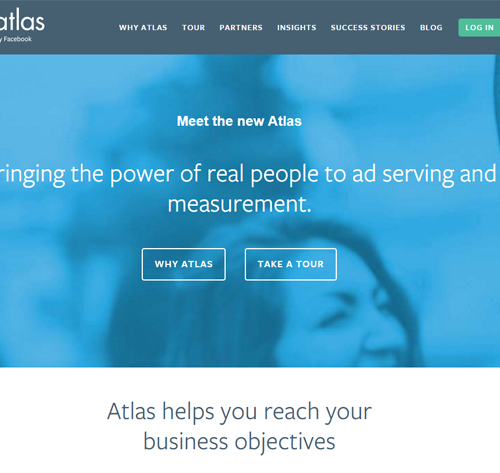In today’s digital world new online marketing innovations, platforms and concepts are announced on a weekly basis.
The latest big change that brands and marketers are facing is the relaunch of Facebook’s ad platform, Atlas. Atlas is aimed at deriving maximum value out of social and mobile customers. Specifically, certain features attempt to bridge the marketing gap between online and offline users to secure better ROI for marketing/ad campaigns.
Atlas boasts an array of new features including tools to let advertisers refine their ad targets around ‘likes’ and consumer interest in apps and third-party websites. It allows marketers to see if a product was purchased on a different platform after viewing an ad on a mobile device, and the ability to create better cross-channel advertising campaigns.
The purported game changer is that Atlas eschews the cookie route and instead focuses on the interactions of consumers via their Facebook account. Facebook believes that this will provide a clearer link between online actions and offline purchases. Currently, Atlas is an ad serving and tracking tool, however, an ad-buying feature is coming down the track.
The big question is what does this all mean for the marketing community and big brands? The answer, at the moment, is not necessarily a huge amount.
Linking offline and online behavior is something marketers have been grappling with for a few years. Tracking and analyzing the interactions of customers on social media platforms for marketing purposes is what a number of services, including Synthesio, already offer.
Similarly, cross-platform marketing software is nothing new. What is interesting, however, is that this is Facebook, so the potential insights that can be gained from the volume of data available is exciting. I am also curious to see how Atlas will develop and link to other online platforms. Facebook has already announced that Instagram will use Atlas, however it is of course unlikely they will allow social networks that they don’t own access to Atlas’ tracking capabilities.
One of the more pressing issues is how consumers will react to Atlas. The uproar around privacy issues is not going to be helped if Facebook users find it intrusive that ads follow them around the internet based on in-store purchase or ‘likes.’ Although the number of users who adjust their privacy settings or delete their accounts to ‘opt-out’ of Atlas is likely to be small, a backlash of negative feedback could force Facebook to adjust how Atlas collects data, potentially affecting how brands run long-term marketing campaigns.
Atlas is unlikely to change the bread and butter of marketing content, however, any tool that can help marketers better target and understand customers is welcome. Bridging the gap between offline and online marketing is one of the big challenges facing the marketing industry today, where so much of our marketing budget is now aimed at the online world.
Although Atlas has made a stab at doing this, it does depend on consumers providing the email address they used to create their Facebook account to the shop they are making a purchase from.
In its current form Atlas is not going to cause a revolution. However, if Atlas can develop to encompass more platforms and build on its features, it could become a serious competitor to Google.






